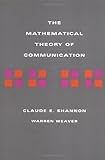With regards to danger this 5 minute video [1] by Stephen Fry conveys a powerful idea.
I think all of Western Philosophy in the last 120 or so years has concerned itself with the "linguistic turn" [2]. If you follow the breadcrumbs from Wittgenstein, Frege, Russell, Dumett, Chomsky, Quine etc. at a high-level you may begin to observe a common thread, patterns and concepts between Logic and Language which have been crystalized in Programming Language Theory [3].
At the risk of being a little too radical (with some intent of shock value) my view is that Truth is constructed not discovered [4]. This is also an argument Richard Rorty makes in "Contingency, Irony and Solidarity" [5]. Ultimately, language is a tool [6]. The responsible use of any tool (be it language or a gun) is a moral concern and an individual responsibility.
For unpacking the question "What is communication?" there's no better starting point than Shannon's "The Mathematical theory of Communication" [7]
[1] https://www.youtube.com/watch?v=ohrtFuxUzZE
[2] https://en.wikipedia.org/wiki/Linguistic_turn
[3] https://en.wikipedia.org/wiki/Programming_language_theory
[4] https://en.wikipedia.org/wiki/Constructivist_epistemology
[5] https://en.wikipedia.org/wiki/Contingency,_Irony,_and_Solida...
[6] https://www.youtube.com/watch?v=TDiENpmpY78&t=1s
[7] https://www.amazon.com/Mathematical-Theory-Communication-Cla...
(The book version of Shannon's paper [1] is even a bit better.)
0. http://www3.alcatel-lucent.com/bstj/vol27-1948/articles/bstj...
1. http://www.amazon.com/Mathematical-Theory-Communication-Clau...


"The Mathematical Theory of Communication"
It's a surprisingly readable small paperback book. It's not a hard read if you have some familiarity with the basics of information theory. There aren't a crazy amount of equations or anything.
https://www.amazon.com/Mathematical-Theory-Communication-Cla...